I believe in storytelling. I believe in the power of storytelling. Stories have the power to heal, connect, and build community. We are all natural storytellers because to be alive is to have a story to tell. Everyone has a story to tell… Everyone has a story worth telling.
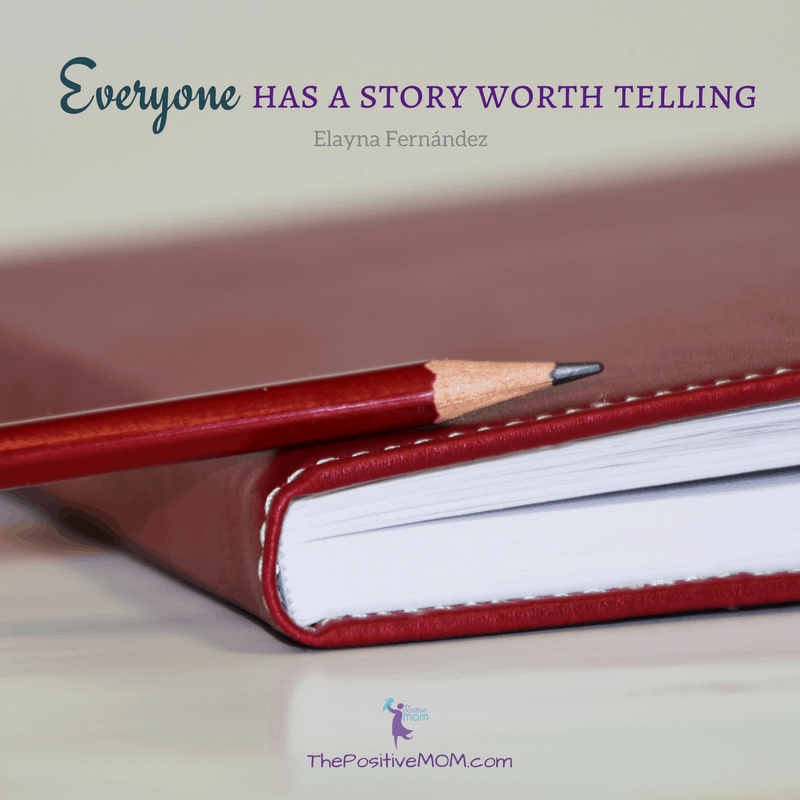
I was raised in a slum in the Dominican Republic, but extreme poverty was not my most painful struggle. My home was broken well before the divorce became news the day of my 10th birthday. Well before the first day of kindergarten, my bruises, scars, and stitches began to tell my untold stories: constant violence, cruel words, and an unforgiving environment that required perfection from an imperfect, spirited child.
Maya Angelou used to say that “there is no greater burden than carrying an untold story,” and I saw school as a way to release that agony. More than a student, I became an emotional refugee. School was my shelter, my safe haven, and my happy place. I had found a place where I could be myself, express myself and be heard.
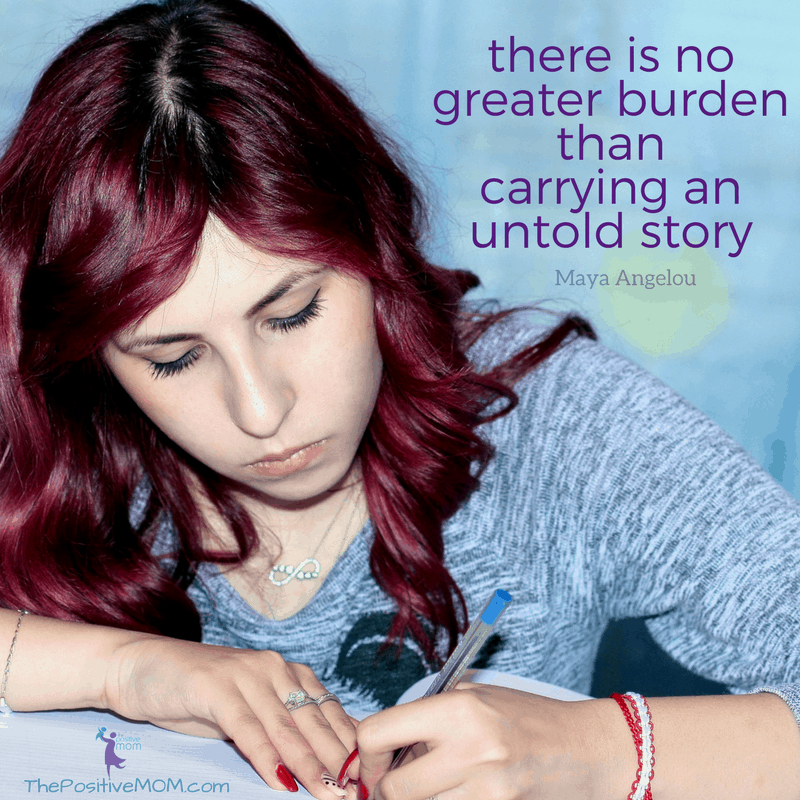
My dad jokes that my school notebooks were “my first blog.” I knew my teachers would review my homework, so each day, I wrote a journal entry in the form of a story for them to read. I don’t know if I’ll ever know their thoughts, but I felt more connected to them through this simple, yet brave, ritual. Though some people in my life would have preferred for these stories to remain buried and I often had to pay a painful price for telling them, I knew I loved it when my grandpa and my dad told stories, and I was motivated by my love and admiration for them. I learned that writing stories was as powerful as listening to them. I discovered that I could find meaning, purpose, and relief in storytelling and I became infatuated with it.
When I was seven years old I started my first business; a cardboard puppet theater. The kids’ eyes lit up a neighborhood that rarely enjoyed the luxury of electric power. I was fascinated by the “oohs” and “ahhhs,” the tears flowing down their cheeks, and the laughter that upset the emptiness in their stomachs. These stories connected us and, though we had been programmed to believe we were different, we found a sense of equality in our hopes and in our pain.
Soon I realized that there was something potent behind these stories, beyond the coins I collected, beyond my own passion, beyond myself. Suddenly, fetching water didn’t feel as strenuous, my endless chores didn’t feel as difficult, and even the humiliating punishments didn’t feel as painful because each trial gave me a story to tell. I would tell a story everywhere to everyone who would listen. A story that would entertain, teach a universal lesson, infuse hope, and bust the cruel myth that people are alone in their hardships and that no one shares their joy.
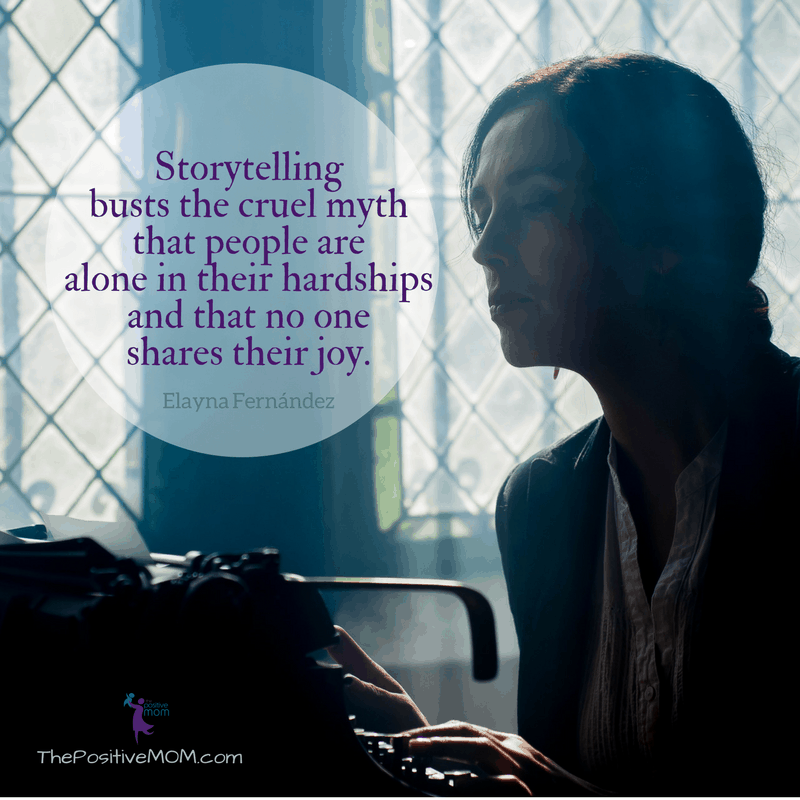
You may have heard of storytelling as an art form, but it’s actually much simpler than that. Storytelling does not require a special ability and it is not a skill you need to be trained on; storytelling is something that comes natural to you, that your brain is wired to do. A story is a retelling of events, so everything you experience is a potential story. But there are indeed requirements to storytelling: storytelling takes courage, humility, and empathy to share your journey. It requires getting out of your own way and being willing to unlearn what we’ve been taught as truth.
No wonder storytelling is easier for young children. Even the most quiet and reserved child can participate naturally and spontaneously in a story exchange. And a child who struggles with math or even with language, does not struggle telling you about something that evoked emotion: something they found funny, something that “made them happy,” something that “made them sad,” something they feel passionate about… a story. We don’t outgrow stories.
Have you ever read a parable, a chronicle, or even a vision and found yourself transported to the time, place, and event described? The most influential leaders, even Jesus Christ himself, have used storytelling to teach truth, model, and inspire human behavior. But you need not consider yourself to be a change-agent, a wordsmith, or a powerful orator to be storyteller.
Telling my emotional, vulnerable, raw stories has sustained me over the years. It makes sense now why through the fear, doubt, and uncertainty of single motherhood, I had the courage to make storytelling my career path. I took a while before I called it storytelling, and even longer before I owned the “storyteller” title. The stories I tell and share help other moms at times when they feel unworthy, unloved, and unwell… feelings that I’ve struggled with for so long… feelings that I’ve found the power of storytelling can heal, in any language.
When I saw my two older daughters become published authors at nine and ten years old, telling their stories to help others, my belief that we are all storytellers was reaffirmed. As I listen to my 3-year-old daughter recite the story of her birth, I also understand that a story need not be extraordinary or unique to be encouraging, persuasive, and enjoyable—it just needs to be your own.
Stories influence, transform, and build legacy. It is through the telling of stories, although not necessarily ornate, eloquent, nor articulate, that we create sacred connections, thriving communities, and firm conviction.
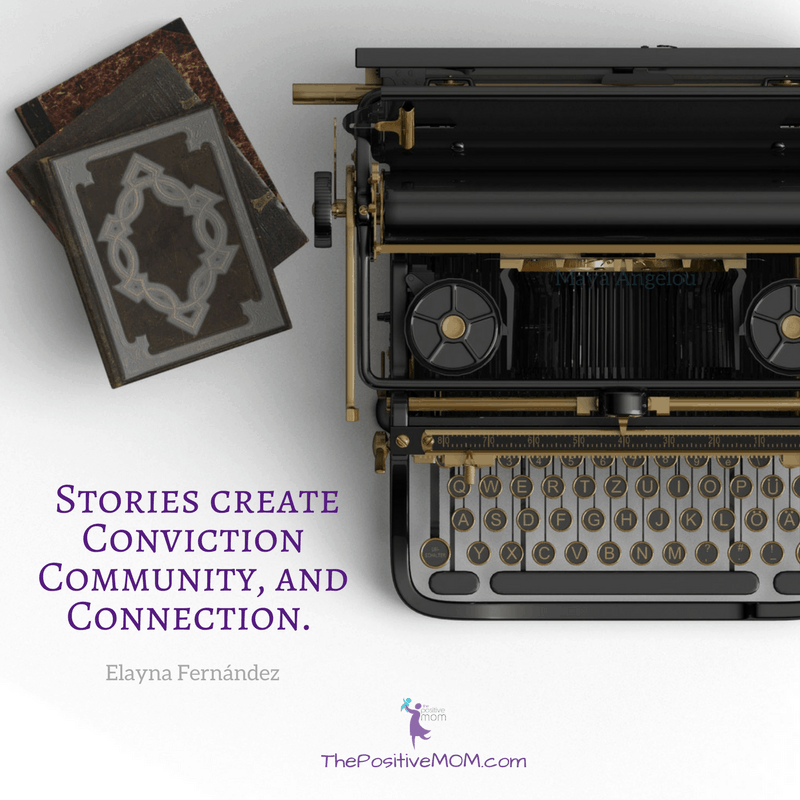
Storytelling is not mere engaging communication or preservation of information; your story is the therapeutic elixir to your present, your link to the past, and your ticket to impact the future. I am a storyteller. You are a storyteller. Your life story matters—and no one can tell it the way you do.
A heartfelt story told at the cradle, at the family dinner table, or through the digital campfire we call the Internet, can cause your ideas, your thoughts, and your perspective to become immortal. Thankfully, there are thousands of platforms for telling the meaningful pieces of your story. Somehow, I’ve been led, almost pushed, to use these platforms, teach about them, and help others share their impactful stories on them.
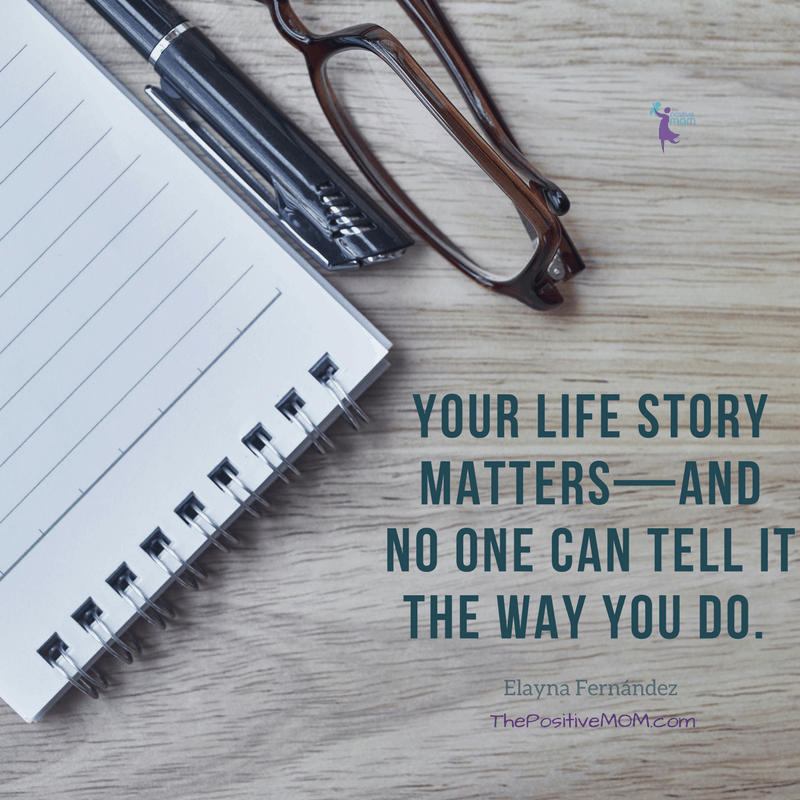
Storytelling plays a role in helping us reclaim our personal power, redefine our identity, and establish our personal brand. As we craft our story, we get back to the essence of who we are and realize we are not our story. My story has evolved and has yet to evolve. And though I’m not omnipotent, unable to change the past, and with no special power to dictate every setting and character archetype in my story, I get to reframe my story, I get to attach meaning to that story, and in doing so, I can co-steer the direction in which my story goes.
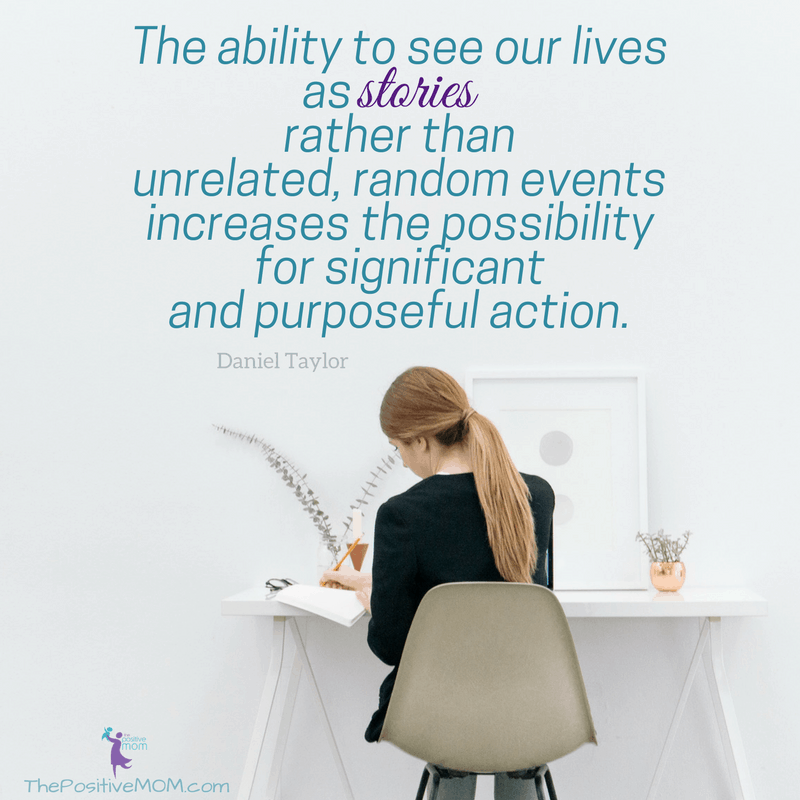
As you think of the most memorable stories in your lifetime, do you see a “once upon a time” that can become a “happily ever after?” Daniel Taylor, author of “Tell Me A Story: The Life-Shaping Power of Our Stories” puts it this way: “The ability to see our lives as stories rather than unrelated, random events increases the possibility for significant and purposeful action.” What if you could use the existing elements in your story and face the blank page of today with the confidence that you can co-author the next chapter? It’s so exciting! If we don’t like our story, we can change it.
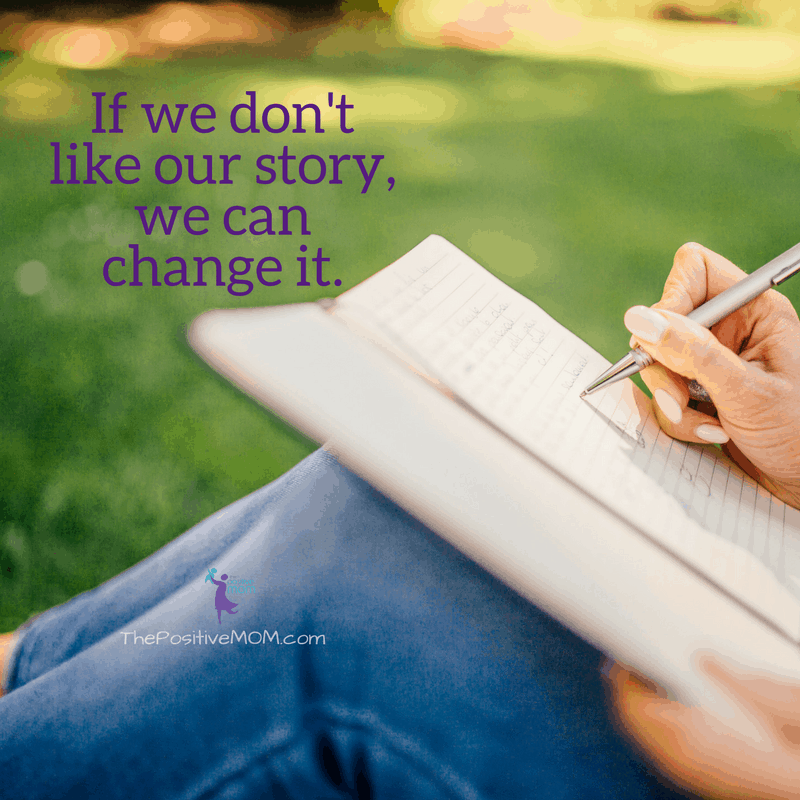
Storytelling has been vital in my life because it’s a powerful tool to combat shame and trauma, as well as encourage intentional action toward deep personal transformation. However, what has had the most emotional impact in me is that facing my own story has helped me truly understand what it means to appreciate another human being’s story.
Barack Obama once said “I had to know and understand my own story before I could listen and help other people with theirs.” As you use storytelling to reimagine who you truly are, your words can weave a common thread of unity that can create community and collective meaning. Your story is part of mine and my story part of yours… and as we exchange them, we become one.
What was the last story you told someone? Maybe it was about the first day of school, about how you met someone, or how you started your home business. By sharing meaning, you invited that person into a deeper level of relationship with you and they created or deepened their perception of you. Let’s talk about the power of storytelling!
[ela]

How To Prepare For A Successful Video Shoot And Create High Quality Videos
Tuesday 29th of December 2020
[…] content on that video. Think about each video as a story with a beginning, middle, and end because storytelling is the best way to make a deep, genuine connection with your […]
Your Story Matters. You Matter. You Are An Inspiration
Monday 12th of October 2020
[…] Casey Kasem’s show, I felt the power of a story to touch lives, to inspire, to empower […]
This Is The One Thing That Holds You Back From Success
Sunday 26th of July 2020
[…] is not just a feel good story, it’s a real story – and it can be your story, if you choose to ignore the facts and follow your own […]
Simple Ways To Harness The Power Of Positive Thinking ★ Elayna Fernandez ~ The Positive MOM ♥
Saturday 28th of September 2019
[…] we are curious to learn the full story, I believe your understanding leads you to feeling compassion and thinking kind thoughts for the […]
Reasons Why Blogging Isn’t Working For You ★ Elayna Fernandez ~ The Positive MOM ♥
Sunday 11th of August 2019
[…] fell in love with storytelling when I was a little girl. Telling stories has always been a balm for my soul, and I felt so […]